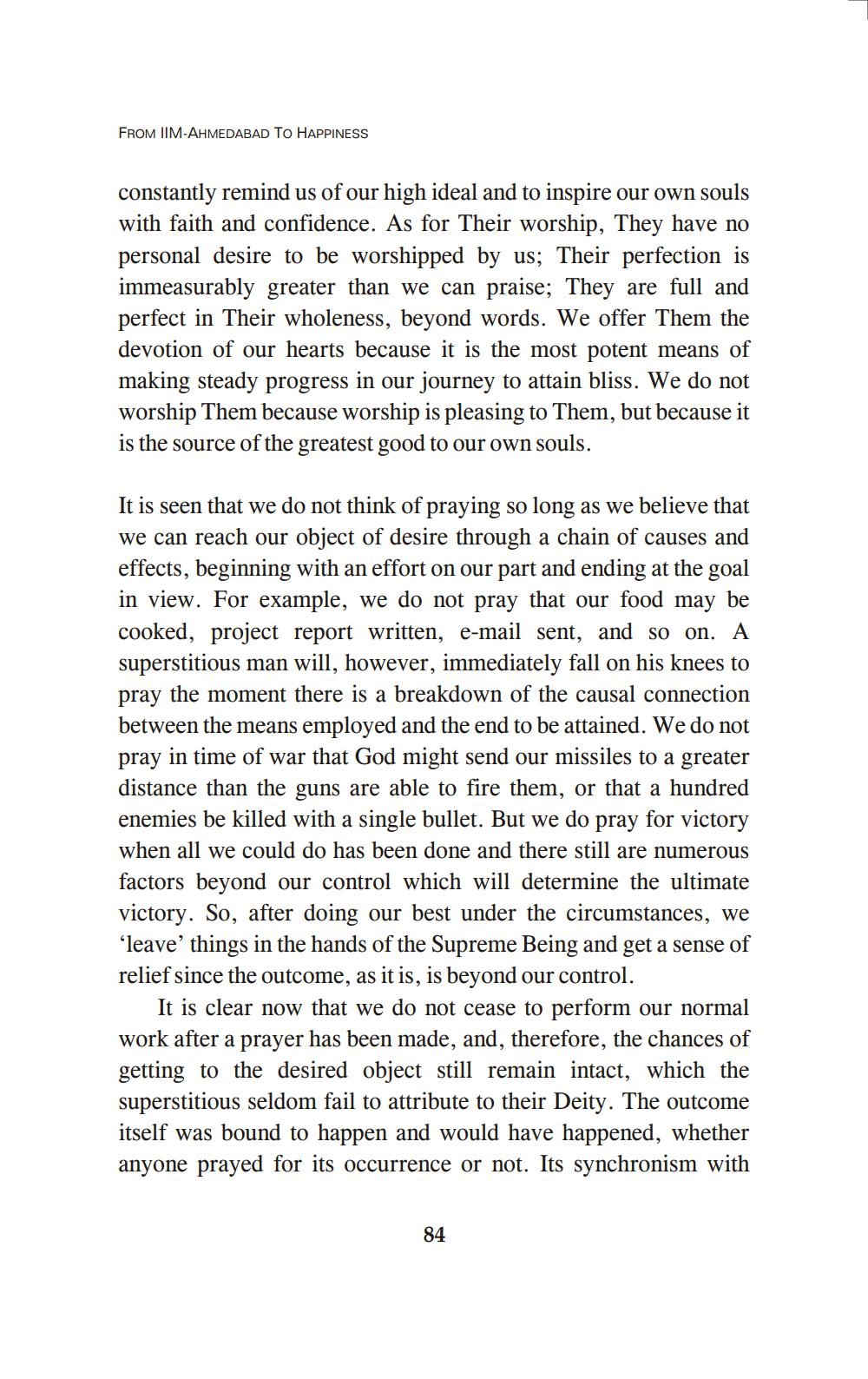________________
FROM IIM-AHMEDABAD TO HAPPINESS
constantly remind us of our high ideal and to inspire our own souls with faith and confidence. As for Their worship, They have no personal desire to be worshipped by us; Their perfection is immeasurably greater than we can praise; They are full and perfect in Their wholeness, beyond words. We offer Them the devotion of our hearts because it is the most potent means of making steady progress in our journey to attain bliss. We do not worship Them because worship is pleasing to Them, but because it is the source of the greatest good to our own souls.
It is seen that we do not think of praying so long as we believe that we can reach our object of desire through a chain of causes and effects, beginning with an effort on our part and ending at the goal in view. For example, we do not pray that our food may be cooked, project report written, e-mail sent, and so on. A superstitious man will, however, immediately fall on his knees to pray the moment there is a breakdown of the causal connection between the means employed and the end to be attained. We do not pray in time of war that God might send our missiles to a greater distance than the guns are able to fire them, or that a hundred enemies be killed with a single bullet. But we do pray for victory when all we could do has been done and there still are numerous factors beyond our control which will determine the ultimate victory. So, after doing our best under the circumstances, we ‘leave' things in the hands of the Supreme Being and get a sense of relief since the outcome, as it is, is beyond our control.
It is clear now that we do not cease to perform our normal work after a prayer has been made, and, therefore, the chances of getting to the desired object still remain intact, which the superstitious seldom fail to attribute to their Deity. The outcome itself was bound to happen and would have happened, whether anyone prayed for its occurrence or not. Its synchronism with
84




